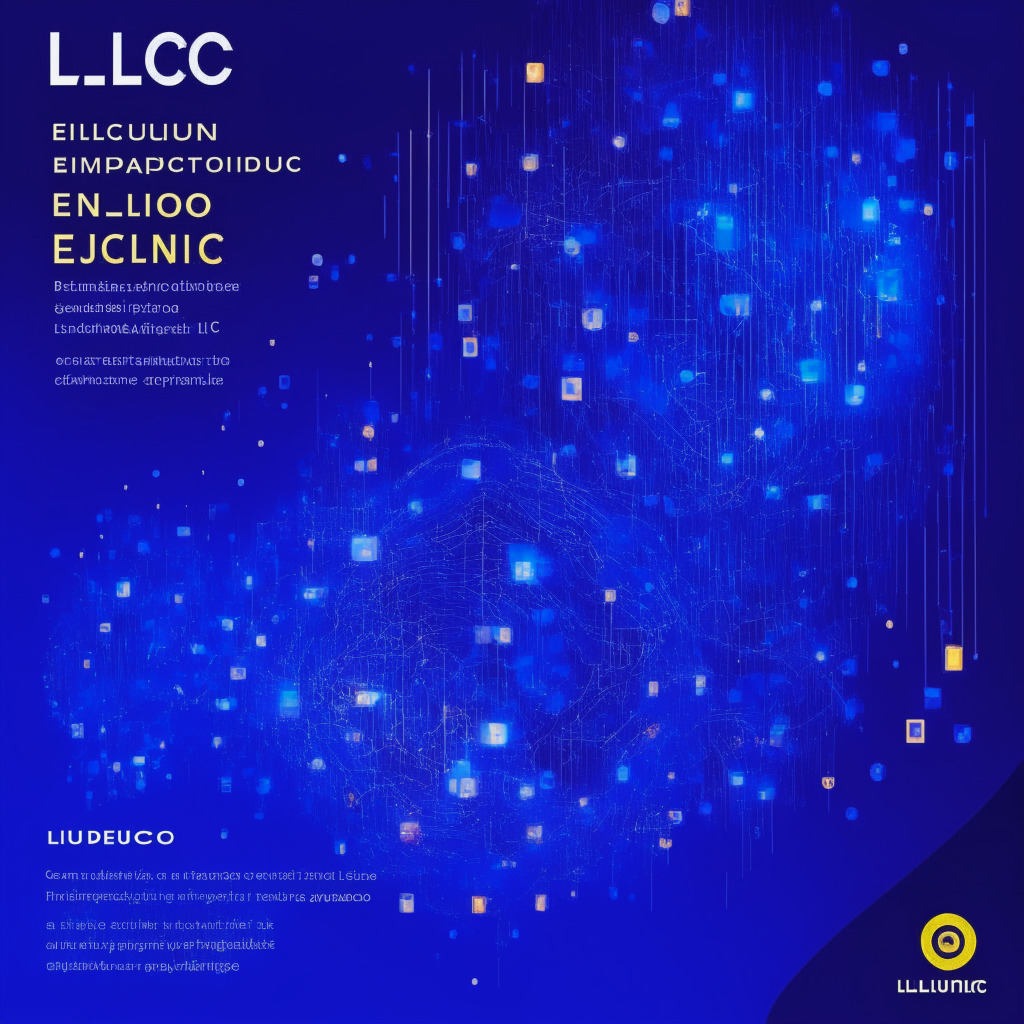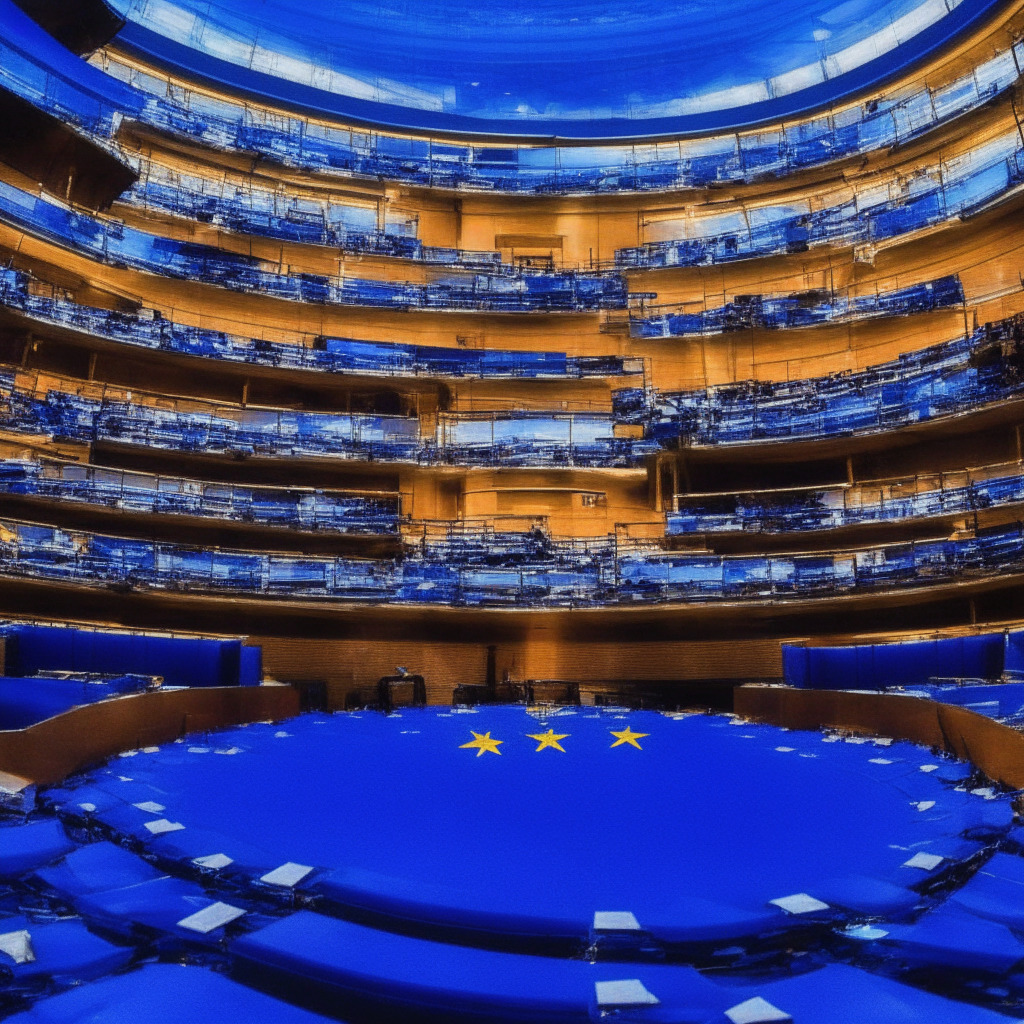SEC Chair Gary Gensler faces criticism for his broad approach to cryptocurrencies, causing venture capital investment in the U.S. crypto industry to decline compared to the European Union. The EU’s MiCA legislation acknowledges utility tokens, providing a clear framework for digital assets. New legislation is needed in the U.S. to address the definition of securities and digital asset regulation.
Search Results for: European Union
CACEIS Registers as Digital Asset Provider: Balancing Decentralization and Regulation in France
Credit Agricole’s CACEIS, a joint venture with Santander, recently registered as a digital asset services provider in France. The European Union has adopted the Markets in Crypto Assets (MiCA) framework, aiming to establish comprehensive regulations for cryptocurrencies in Europe, implementing environmental safeguards, supervisory provisions, and consumer protections. French market demonstrates openness to digital assets while balancing decentralization with stricter licensing requirements.
Digital Euro Delayed: Unveiling the Privacy and Technical Hurdles Behind the Pause
The European Union has temporarily paused the release of legislation for a digital euro, initially scheduled for June 28th, due to leaked draft concerns related to privacy and technical issues with central bank digital currencies. The future of the digital euro remains uncertain as finance ministers and institutions explore possible alternatives, emphasizing the need to address privacy and technical challenges for a successful launch.
Digital Euro vs Cash Sovereignty: Slovakia’s Stand Sparks Global CBDC Debate
Slovakia amends its constitution to include the right to use cash amid the European Union’s exploration of a central bank digital currency (CBDC). While the digital euro offers potential benefits like financial inclusion and streamlined transactions, critics raise concerns about centralization, privacy, and disruption of traditional banking models.
Crypto Regulation Migration: Boon or Bane for the Industry and Investors?
The recent crackdown on crypto regulations in the US has led to alternative locations like the European Union, the United Kingdom, Switzerland, Hong Kong, and the United Arab Emirates adopting more crypto-friendly regulations. However, a Wall Street Journal article cautioned that lenient regulations might only persist until a major scandal triggers stricter rules, impacting investors and the industry’s long-term viability.
EUIPO Trials Blockchain Solution to Combat Counterfeiting: Hype or Hope?
The European Union Intellectual Property Office (EUIPO) recently discovered promising potential in blockchain-based anti-counterfeiting tools after trials involving brands, logistics, and border control. Utilizing distributed ledger technology, an open-source platform is being developed to track products and verify their authenticity, potentially reducing counterfeit market and protecting consumers and businesses.
EU’s MiCA Law: Balancing Crypto Growth, Privacy, and Regulation – Pros and Cons Unveiled
The European Union’s groundbreaking Markets in Crypto Assets law (MiCA) introduces crypto licensing rules, providing wallet providers the ability to operate across the bloc and imposing new governance and financial requirements on stablecoin issuers. This move towards regulation presents both opportunities for mainstream adoption and concerns about stifling innovation within the crypto industry.
Cryptocurrency Advertising: Striking a Balance Between Innovation and Consumer Protection
BEUC, a group of European consumer organizations, calls for stricter policies on crypto advertising and influencer promotions on social media platforms. The European Union’s Markets in Crypto Assets regulation and Digital Services Act aim to address unfair practices and protect consumers from potential financial losses related to crypto scams.
EU vs. US Crypto Regulation: Competitiveness & Innovation at Stake in the Global Market
The European Union’s new Markets in Crypto Assets (MiCA) law provides clearer guidelines for blockchain innovators, potentially giving the EU an edge over the U.S. in nurturing cryptocurrency innovation. As the EU prepares to finalize MiCA’s specifics, U.S. legislators should learn from Europe’s approach to legislate for crypto adoption and balance competitiveness with safety and security.
Navigating EU’s MiCA Policy Gaps: Token Classification, Staking, and NFTs in Crypto Regulation
Experts raise concerns about gaps in the European Union’s Markets in Crypto Assets (MiCA) policy package, specifically in token classification, staking, and NFTs. The study suggests considering the US’s Howey Test for token classification and highlights the need for clarity on granting interest and investors’ profit expectations.
MiCA Rules Signed: Balancing Crypto Regulation and Innovation in the EU
The European Union’s Markets in Crypto-Assets (MiCA) rules have been signed into law, introducing a comprehensive regulatory framework for cryptocurrencies. The new regulations aim to prevent money laundering and provide regulatory clarity while maintaining a balance between innovation and necessary controls in the rapidly growing crypto market.
MiCA Framework Debate: Striking a Balance for EU Crypto Regulations and Innovation
The Markets in Crypto-Assets (MiCA) bill has been signed into law by European Union officials, aiming to establish a consistent regulatory framework for crypto assets among EU member states. With regulations likely starting in 2024, the MiCA framework’s implementation could significantly impact balancing innovation and stakeholder protection in the crypto ecosystem.
Exploring Magic’s $52M Funding: Wallet-as-a-Service Future, Adoption, and Trustworthiness
San Francisco-based Magic has raised $52 million in a funding round led by PayPal Ventures, with participation from venture firms like Cherubic, Synchrony, and Northzone. Magic offers a wallet-as-a-service solution, widely used in retail, music, and gaming industries, enabling digital ownership opportunities and expanding functionality. The company aims to increase adoption in the European Union and Asia-Pacific region.
Coinbase’s Global Expansion: Can US Regulators Keep Up and Maintain Competitive Edge?
Coinbase navigates international expansion amidst US regulatory challenges, praising European Union and United Kingdom for their comprehensive approach to crypto regulation. Its aggressive global expansion highlights the need for US regulators to adopt a more proactive approach towards crypto regulation.
EU Crypto Regulation: Balancing Industry Growth and Financial Stability Risks
European Union regulators are working on new measures to establish rules for the cryptocurrency industry and protect retail investors. The European Systemic Risk Board recommends regular reporting from crypto firms, setting leverage limits, and establishing high collateral requirements for decentralized finance products and stablecoins to maintain financial stability.
BlockFi Liquidates Amid Debates and Regulatory Shifts: How It Affects Crypto’s Future
Bankrupt crypto lender BlockFi plans to liquidate its platform, citing regulatory developments as a factor. Meanwhile, the SEC dismissed Coinbase’s lawsuit against the agency as “baseless,” and the European Union recently passed Markets in Crypto-Assets (MiCA) legislation, shaping the future European cryptocurrency industry. Legal and regulatory developments continue to impact the crypto industry’s future as the sector evolves.
EU’s MiCA Legislation: A Step Towards Unified Crypto Regulations and Market Transparency
The European Union’s MiCA legislation has received final approval, introducing a harmonized regulatory framework for cryptocurrency businesses. Aimed at preventing money laundering and requiring authorization from the EU, the law brings greater transparency and compliance, covering issuers of various tokens and service providers like trading venues and crypto wallets.
EU’s MiCA Legislation: Boon or Bane for the Crypto Industry and Its Future Growth?
The Markets in Crypto-Assets (MiCA) legislation, recently cleared by the European Union Council, aims to provide clear regulatory guidelines for cryptocurrencies within the EU. The legislation’s introduction could enhance credibility and legitimacy of the cryptocurrency market, fostering transparency and trust. However, concerns over excessive bureaucracy and stifling innovation have been raised.
EU’s Crypto Regulation Leap: Balancing Innovation and Oversight in the MiCA Era
The European Union (EU) finance ministers unanimously approved the Markets in Crypto Assets regulation (MiCA), positioning the EU at the forefront of crypto licensing regimes. Along with MiCA, new anti-money laundering measures related to crypto fund transfers were endorsed. These regulations bring legitimacy and oversight to the crypto industry while potentially impacting innovation and privacy concerns.
The MiCA Effect: Europe’s Crypto Boom Amid Regulatory Changes and Potential Drawbacks
The “MiCA effect” refers to the European Union’s new regulatory framework for crypto, which has significantly increased venture capital investment in European crypto projects. Providing regulatory clarity, MiCA aims to regulate crypto-related activities in the EU, concerning digital token issuance and crypto-asset service providers. While fostering innovation and user protection, it’s crucial to remain vigilant about potential drawbacks from increased regulation.
EU’s MiCA Regulation: Impact on Crypto Assets, Stablecoins and NFTs, and Investor Protections
The European Union is preparing to implement the Markets in Crypto Assets (MiCA) regulation by July 2023, covering crypto-assets and their issuance, trading, and offering. MiCA aims to update the EU with new technologies, introducing stricter rules on stablecoins, increased disclosure obligations for crypto businesses, and implementing anti-money laundering and data security procedures. However, it does not apply to non-fungible tokens (NFTs).
EU’s MiCA Crypto Regulation: Inspiration for US Policy or Hindrance to Growth?
The European Union’s crypto regulation, Markets in Crypto Assets (MiCA), garners global attention, including from the SEC commissioner Hester Peirce who suggests MiCA could inspire the United States. A unified regulatory approach could foster innovation, customer protection, and potentially boost the crypto industry’s growth, provided there’s close collaboration and adaptation.
Europe’s First Compliant DeFi Bank and Stablecoin: Unstoppable Finance Embraces MiCA Rules
Berlin-based fintech startup Unstoppable Finance is preparing to launch Europe’s first compliant “DeFi-native bank” and a fiat-backed Euro-pegged stablecoin in line with the European Union’s MiCA guidelines. The team previously established Germany’s first regulated crypto exchange and founded Unstoppable Finance in 2021, known for its Ultimate DeFi wallet.
Balancing Act: Choosing the Right Consensus Mechanism for Your Blockchain Project
“Choosing a consensus mechanism for a blockchain project is complex and multifaceted, involving the balancing of security, sustainability, scalability, regional preferences, and long-term project goals. The decision requires understanding and navigating through various project-specific details and an ever-evolving technology landscape.”
Unraveling the Ripple: Bitstamp’s Glitch, XRP’s Price Plunge, and Ties with Bitso
Bitstamp Exchange quickly resolved a temporary snag affecting XRP trade, halting affected orders to fix the glitch. This sparked rumors of problems with Bitcoin and Dogecoin pairings, triggering an uncharacteristic plunge in XRP’s price. Despite these issues, partnership between Bitstamp and Ripple remains strong, utilizing XRP’s potential for seamless cross-border payments.
EU’s New Crypto Regulatory Outlook: Balancing Sustainability, Transparency, and Market Growth
ESMA’s latest consultation paper on Markets in Crypto Asset regulation aims at integrating the crypto market by 2024, focusing on sustainability, consistency in crypto services, transparency in pre, and post-trade data, record-keeping by CASPs and accessible white papers. The initiative stresses environmental sustainability, encourages business continuity policies, and emphasizes real-time transparency in transactions.
Mandating Full Crypto Holdings Disclosure: Basel Committee’s Bold Move towards Transparency
The Basel Committee on Banking Supervision intends to mandate banks to disclose their cryptocurrency holdings fully, aiming to bolster transparency. They will detail disclosure requirements for bank’s exposure to crypto assets, with the objective to prevent potential risks within the financial ecosystem. Using this approach, the committee hopes to create increased crypto transparency.
Kraken’s Acquisition of Dutch Crypto Exchange: A Strategic Masterstroke or a Risky Gamble?
“The US-based exchange Kraken plans to acquire Dutch cryptocurrency exchange Coin Meester B.V. (BCM), aiming for European expansion and leveraging the EU’s MiCA regulatory framework. This ambitious move, though promising high cryptocurrency adoption, may lead to greater regulatory scrutiny and operational complexities.”
Cryptocurrency: The Dicey Dance between Global Regulation and Innovation Potential
Mário Centeno, head of Portugal Central Bank, calls for global cooperation in regulating cryptocurrencies due to the high-stake risks of digital assets and decentralized finance (DeFi). He believes uncoordinated international laws could be exploited by companies and that regulating global players at the national level may be ineffective.
Unveiling the Truth: Binance CEO Denies Ownership Claims of CommEX Amidst Russian Expansion
“Binance CEO, Changpeng Zhao, has denied ownership of the new digital asset exchange CommEX, which recently assumed control over Binance’s Russian operations. Despite similarities between the platforms and rumors, Zhao assures no personal or proxy ownership exists between him and CommEX.”
Crypto Collision: As Binance Hits Regulation Wall, Is a New Era Dawning for Cryptocurrencies?
“The decentralised nature of cryptocurrencies is colliding with regulatory restrictions, as evidenced by Binance’s recent challenges. Big payment providers like Paysafe are halting operations, reflecting the global shift in the crypto industry towards greater regulatory scrutiny. However, it remains unclear whether this increased regulation will help or hinder the market’s organic growth.”
Taiwan’s Crypto Sector Shake-Up: Empowering Security and Trust Through New FSC Regulations
Taiwan’s Financial Supervisory Commission (FSC) introduces fresh directives for Virtual Asset Service Providers (VASPs) to improve cryptocurrency users’ security. Guidelines demand a clear separation of company and customer assets, increased transparency, fortified internal controls within crypto firms, and adherence to robust anti-money laundering mechanisms. These regulations aim to encourage self-regulation in the crypto industry.































